Finance Law
Strategic Counsel for Complex Financial Decisions.
Finance Law in India
As India’s financial sector is largely embracing digital banking, fintech integrations, and real-time payment systems, cybersecurity is no longer a choice. It has become a central concern. Cybersecurity demands awareness from IT teams, corporate boards, bank executives and compliance officers. With increasing exposure to threats like data breaches, system outages, and cross-border cyber-attacks, the legal liabilities of financial institutions and their leadership are under sharper scrutiny.
The Companies Act, 2013 levies directors of banks, NBFCs, and FinTechs to exercise due care and diligence, duties that now extend to overseeing cyber risk, ensuring internal controls, and disclosing key vulnerabilities in board reports. Simultaneously, the Information Technology Act, 2000 mandates that all entities handling sensitive financial data implement “reasonable security practices” and report cyber incidents to the regulators such as CERT-In. Violations can lead to both civil damages and criminal penalties.
With the recent Digital Personal Data Protection Act, 2023 (DPDP Act) adding another regulatory layer, financial firms must treat cybersecurity governance as a board-level priority. Whether operating a payment gateway, offering digital lending, or managing corporate accounts, financial service providers must embed legal compliance into their tech stack. This page outlines the intersection of finance, cybersecurity, and corporate liability in the evolving Indian regulatory landscape.
Services We Offer
Cyber Risk Compliance & Governance Advisory
Incident Response & Breach Notification Support
Legal support in handling cybersecurity incidents, covering mandatory breach reporting to CERT-In under the IT Act, SEBI disclosures for listed companies, and compliance with the DPDP Act’s data breach notification requirements.
FinTech Partnership & Outsourcing Contract Review

Why Choose Our Finance Law Practice?
Understanding Finance Law: Blogs & Resources
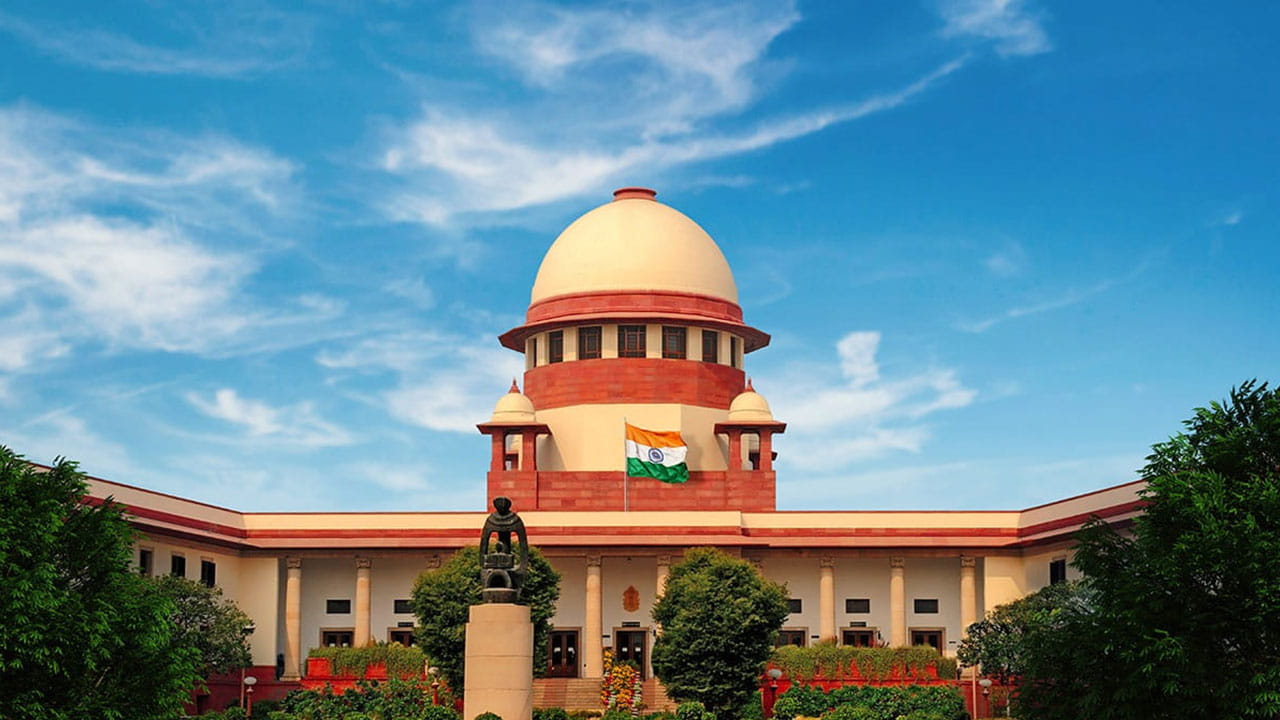
- Admin
- Finance
The Supreme Court of India made a big decision in “Authority for Advance Rulings (Income Tax) v. Tiger Global International […]
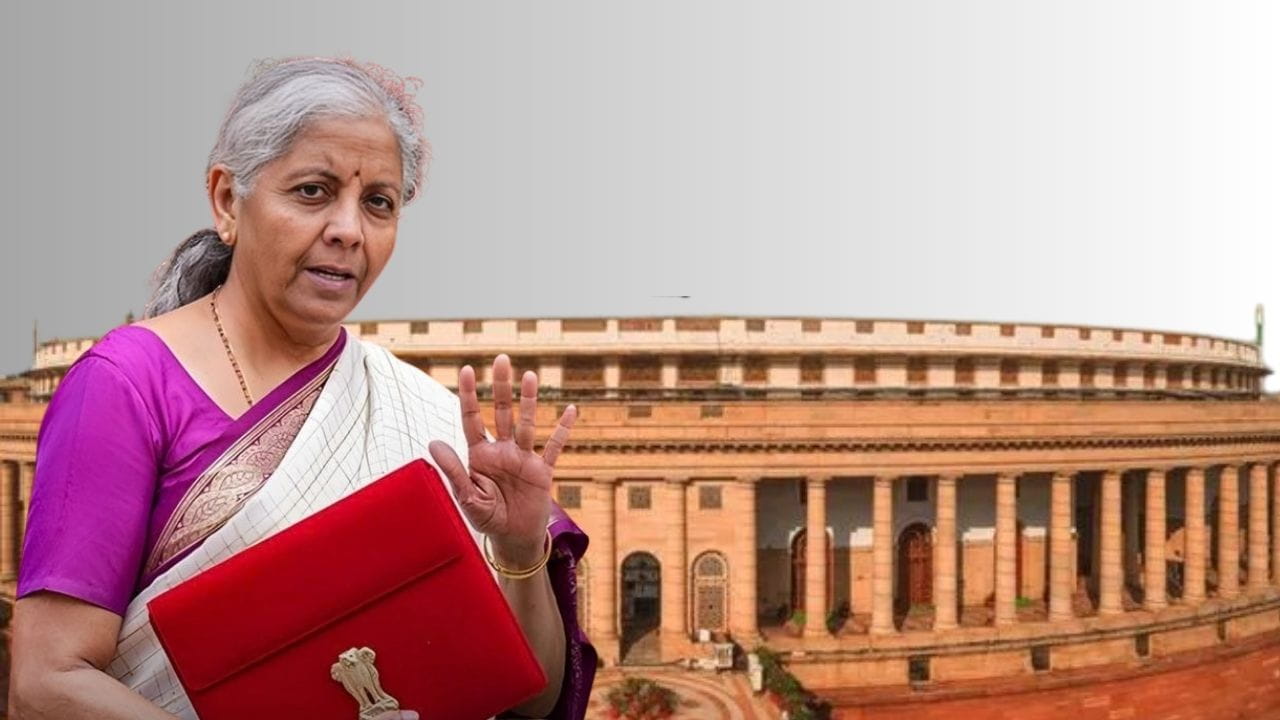
- Admin
- Finance
Why do we need a new law about income tax? The Income Tax Act of 1961, which has been in […]

- Admin
- Finance
The Digital Personal Data Protection Act, 2023 (read with the Digital Personal Data Protection Rules notified in November 2025) represents […]

- Rashmita Das
- Corporate Law, Finance, Insolvency and Bankruptcy Code
The enactment of the Insolvency and Bankruptcy Code (IBC) in 2016 represents one of the most significant economic reforms in […]

- Rashmita Das
- Corporate Law, Finance
Fintech is no longer the “future”, it’s the financial present of India. From UPI autopay to instant KYC onboarding, every […]

- Rashmita Das
- Corporate Law, Finance
In recent years, India’s fintech ecosystem has been lauded as one of the fastest-growing in the world. The surge in […]
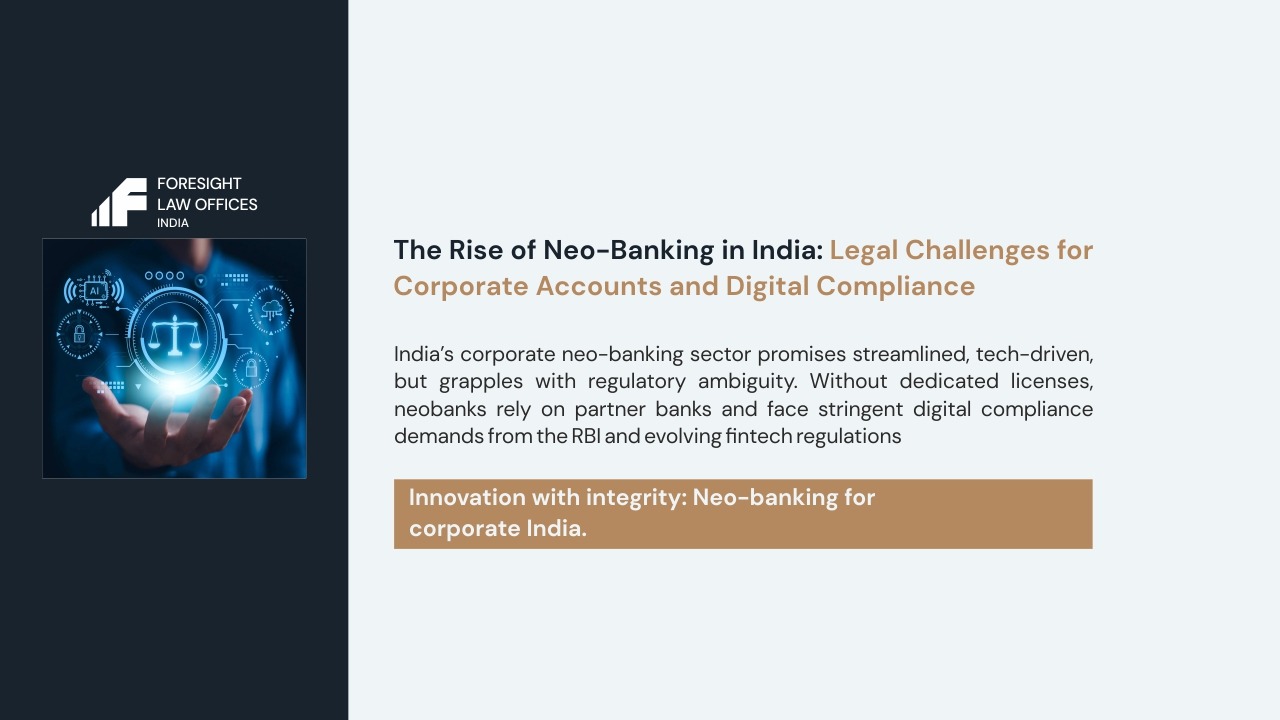
- Rashmita Das
- Corporate Law, Finance
Neo-banks (online or digital-only banks) are fintech firms that operate entirely online without traditional branches. They use technology platforms to […]
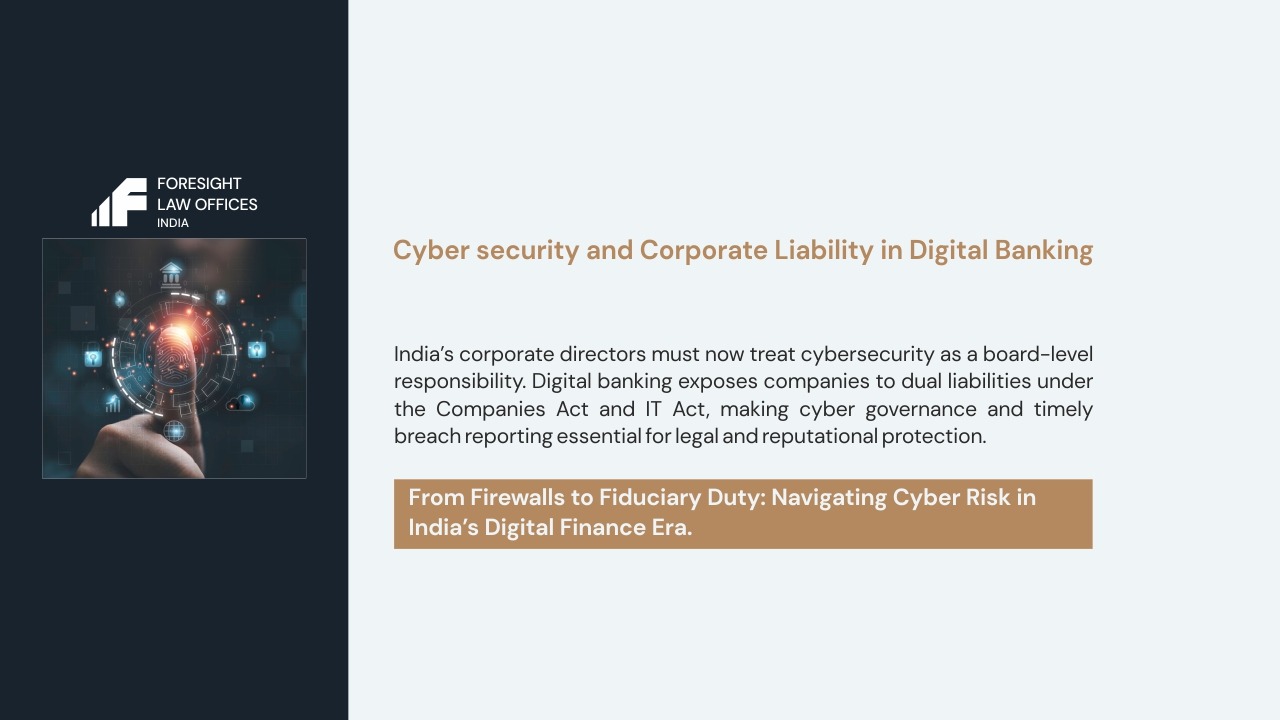
- Admin
- Corporate Law, Finance
India’s rapid shift to digital banking and fintech has heightened cyber risks and regulatory scrutiny. Directors and officers must balance […]
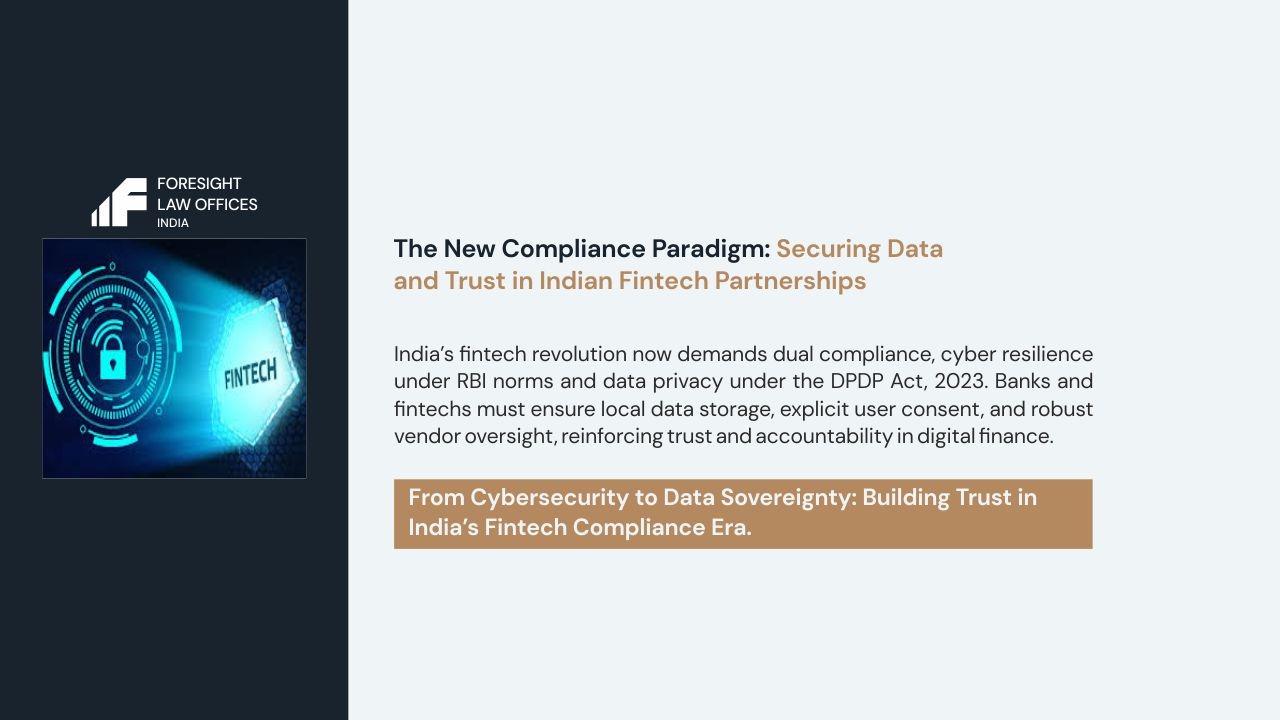
- Rashmita Das
- Corporate Law, Finance
The Data-Driven Nexus of Banking and Technology The rapid growth of the Indian fintech sector, fueled by seamless data exchange, […]
Key Deals & Landmark Matters in Finance Law

Ofb Tech Pvt. Ltd. vs Kkspun India Ltd. & Ors.
Ofb Tech Pvt. Ltd. filed an appeal challenging the judgment passed by the learned Single Judge. The Delhi High Court examined the matter and provided a judgment based on the facts and legal arguments presented.

Kkspun India Ltd. vs Ofb Tech Pvt. Ltd. & Ors.
Kkspun India Ltd. filed a commercial suit against Ofb Tech Pvt. Ltd. and others seeking an ad-interim order of injunction staying the operation and effect of demand letters issued by the defendant. The Delhi High Court considered the matter and provided a judgment based on the facts and legal arguments presented
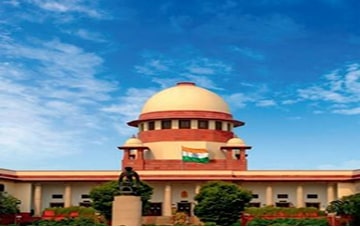
Mls Ofb Tech Private Limited vs Mls Kkspun India Ltd / Klsr lnfratech Ltd.
This case pertains to a contractual dispute between M/s Ofb Tech Private Limited and M/s Kkspun India Ltd, involving six purchase orders for construction materials. The appellant contended that payments were pending despite the supply of goods worth over B81 crore. The matter escalated to the Supreme Court after the Delhi High Court’s decision on 19th September 2022.

Mls L&T Housing Finance Ltd. vs M/s Trishul Developers
In this case, the Supreme Court addressed whether minor procedural errors in notices under the SARFAESI Act could invalidate proceedings. The Court held that such trivial lapses do not vitiate the proceedings unless substantial prejudice is caused to the borrower. The judgment, delivered on 27th October 2020, emphasized the need for substantial harm to invalidate enforcement actions.

Union Of India vs Manraj Enterprises
This appeal concerns a contract dispute between the Union of India and Manraj Enterprises. The Supreme Court addressed the issue of whether an arbitrator can award pendente lite or future interest when the contract explicitly prohibits such awards. The Court ruled that in the presence of a clear contractual bar, the arbitrator cannot grant interest, emphasizing the importance of adhering to agreed contractual terms.

Gyan Prakash Singh vs Chief Commissioner, Central Excise
This case involves a review petition filed by Gyan Prakash Singh against the Chief Commissioner of Central Excise. The specifics of the dispute are not detailed in the available sources. The matter is scheduled for hearing, and the outcome will depend on the Court’s assessment of the arguments presented.

Laxminath Corporation Pvt. Ltd. vs Principal Commissioner of Income Tax
Laxminath Corporation Pvt. Ltd. filed a Special Leave Petition challenging an order by the Principal Commissioner of Income Tax. The petition addresses issues related to the transfer of the company’s case under Section 127(2) of the Income Tax Act, 1961, from Mumbai to New Delhi. The Supreme Court is set to hear the matter, with the company seeking relief from the transfer order.














